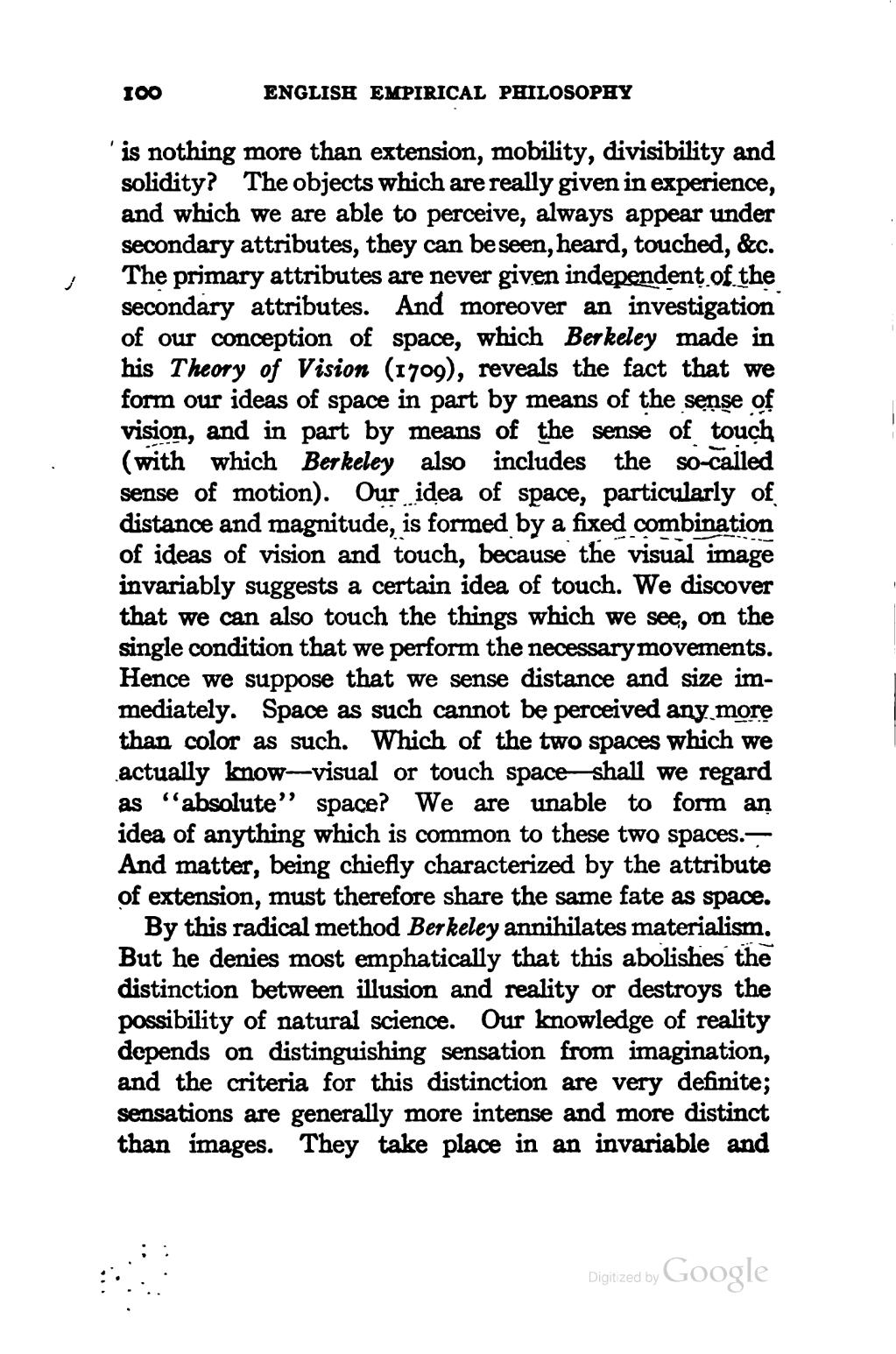is nothing more than extension, mobility, divisibility and solidity? The objects which are really given in experience, and which we are able to perceive, always appear under secondary attributes, they can be seen, heard, touched, &c. The primary attributes are never given independent of the secondary attributes. And moreover an investigation of our conception of space, which Berkeley made in his Theory of Vision (1709), reveals the fact that we form our ideas of space in part by means of the sense of vision, and in part by means of the sense of touch (with which Berkeley also includes the so-called sense of motion). Our idea of space, particularly of distance and magnitude, is formed by a fixed combination of ideas of vision and touch, because the visual image invariably suggests a certain idea of touch. We discover that we can also touch the things which we see, on the single condition that we perform the necessary movements. Hence we suppose that we sense distance and size immediately. Space as such cannot be perceived any more than color as such. Which of the two spaces which we actually know— visual or touch space— shall we regard as "absolute" space? We are unable to form an idea of anything which is common to these two spaces. And matter, being chiefly characterized by the attribute of extension, must therefore share the same fate as space.
By this radical method Berkeley annihilates materialism. But he denies most emphatically that this abolishes the distinction between illusion and reality or destroys the possibility of natural science. Our knowledge of reality depends on distinguishing sensation from imagination, and the criteria for this distinction are very definite; sensations are generally more intense and more distinct than images. They take place in an invariable and

